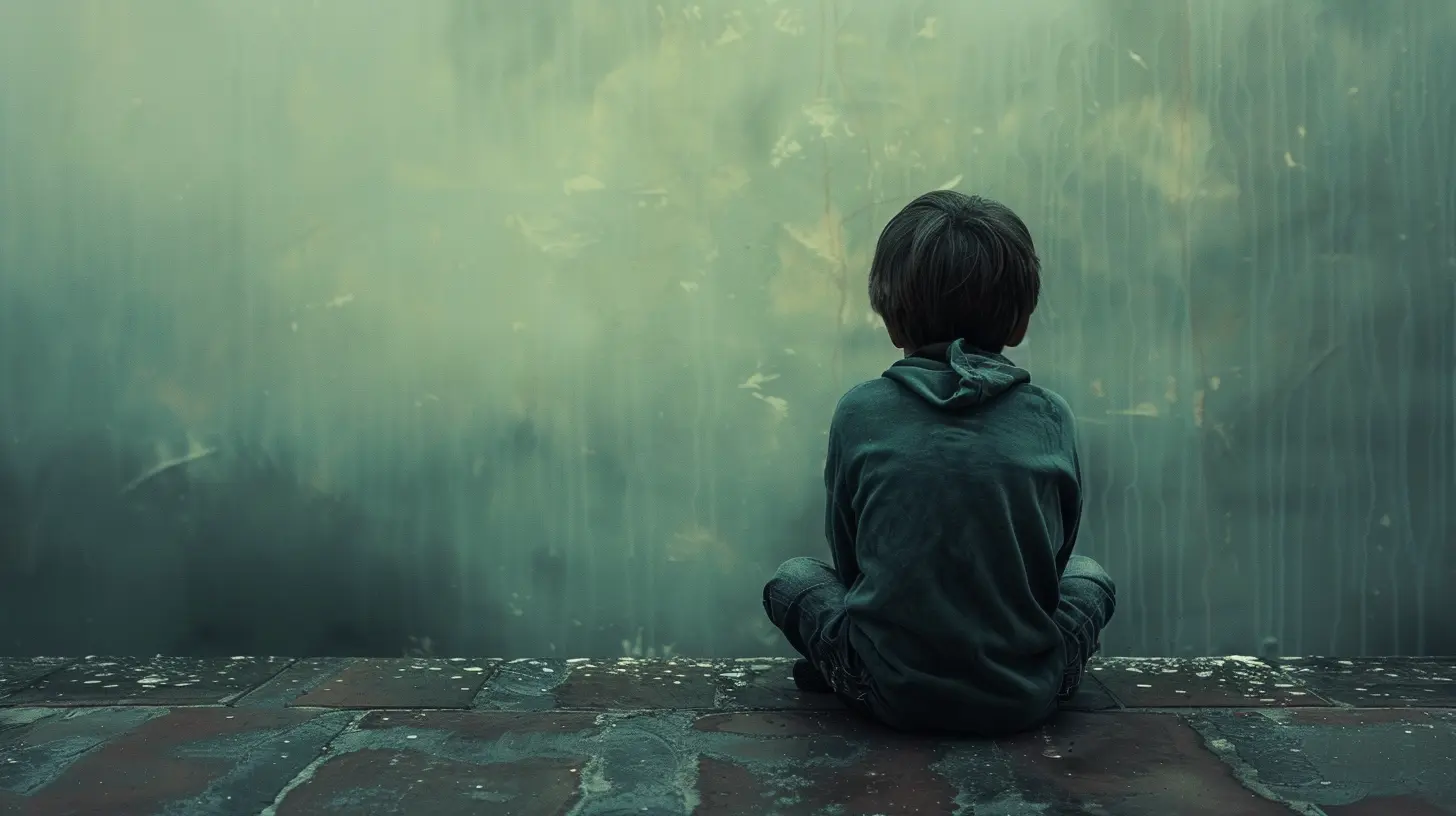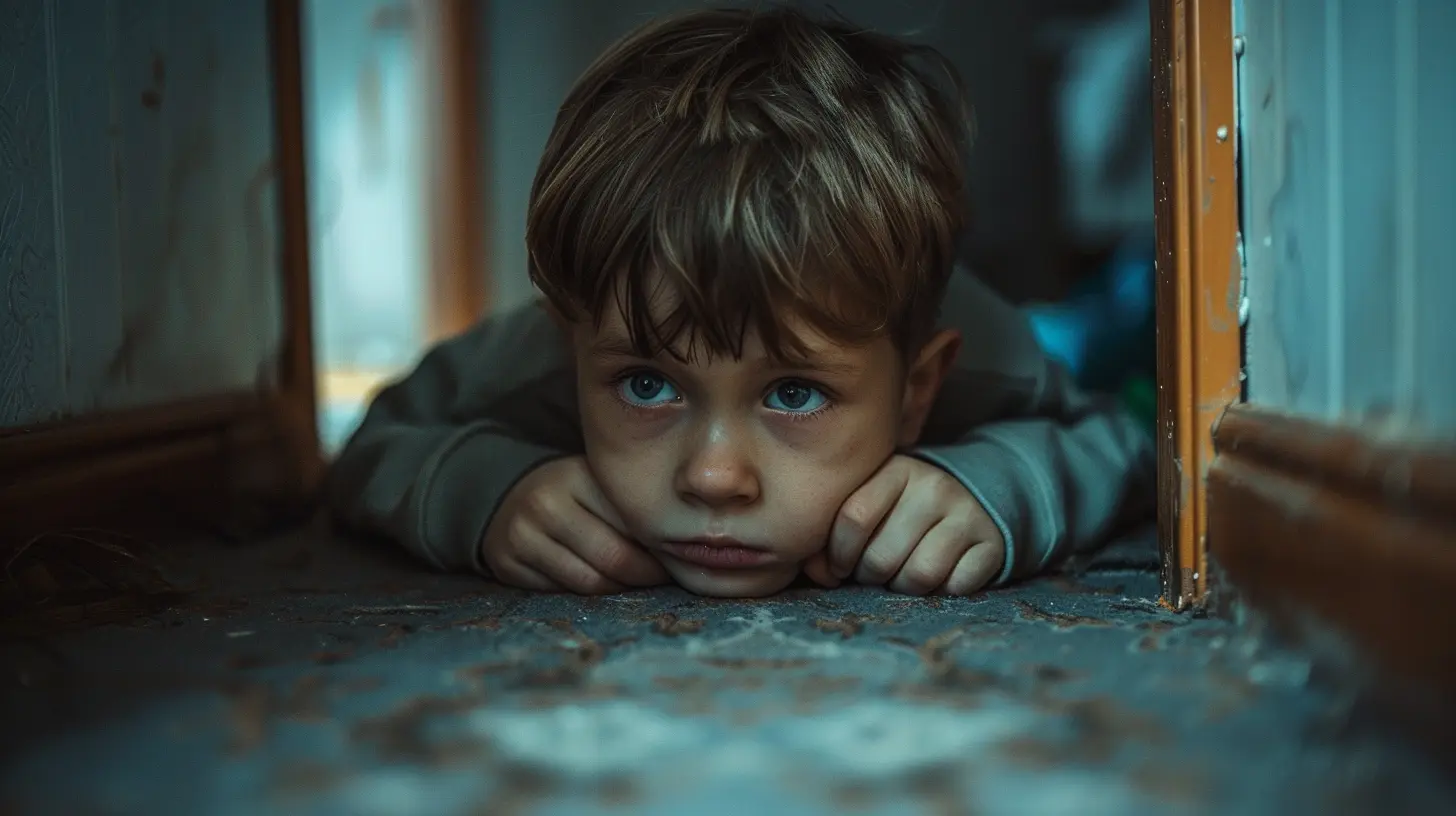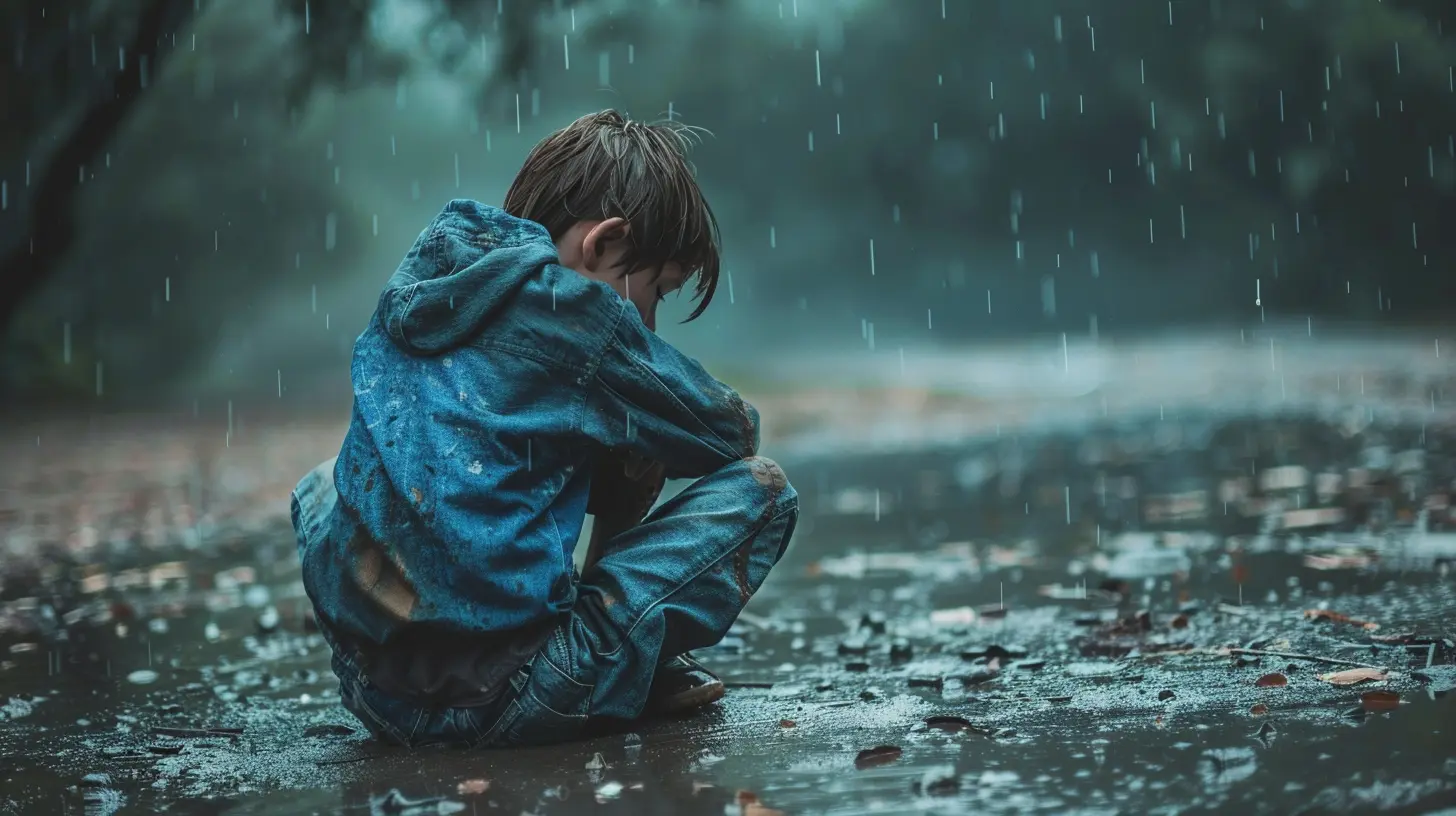Childhood Neglect: The Long-Term Effects on Mental Health
14 October 2025
Childhood is supposed to be a time of love, care, and safety. But what happens when a child doesn't get that? When their cries for attention are ignored, when there's no one to celebrate their victories or comfort them in tough times? Childhood neglect often leaves scars that last far beyond those early years. Sure, bruises heal and broken bones mend, but the psychological wounds caused by neglect can persist for a lifetime.
Neglect isn't just about not having food or shelter. Emotional neglect—when a child’s emotional needs are ignored—can be just as damaging. Let's dive into the long-term effects of childhood neglect on mental health and how it shapes an individual's emotional well-being well into adulthood.

What Is Childhood Neglect?
Childhood neglect occurs when a caregiver consistently fails to meet a child's basic physical, emotional, or psychological needs. It doesn’t always involve outright abuse—sometimes, it’s the absence of care, love, and attention.Neglect can take many forms, including:
- Physical neglect – Not providing food, clothing, shelter, or medical care
- Emotional neglect – Ignoring a child’s emotional needs, withholding love and support
- Educational neglect – Failing to provide proper schooling or educational guidance
- Supervisory neglect – Leaving a child alone for long periods or in unsafe situations
While physical neglect is easier to recognize, emotional neglect often flies under the radar. A child may have food on the table and a roof over their head but feel utterly invisible in their own home.

The Long-Term Mental Health Effects of Childhood Neglect
Neglect doesn’t just fade away once a child grows up. It leaves deep emotional imprints that shape how they see the world, interact with others, and even perceive themselves. Let’s break down the most common long-term mental health effects.1. Low Self-Esteem and Self-Worth Issues
When a child grows up feeling unnoticed, they internalize the belief that they don't matter. If their caregivers didn’t make them feel valued, why would they believe they’re worth something? This can lead to persistent feelings of worthlessness, self-doubt, and an inability to recognize their own strengths.Many adults who experienced neglect struggle with imposter syndrome, constantly feeling like they aren’t good enough despite evidence of their success.
2. Difficulty Forming and Maintaining Relationships
Healthy relationships require trust, vulnerability, and emotional connection. But for someone who was neglected as a child, these concepts may feel foreign or even dangerous.- Fear of intimacy – Neglected children often grow into adults who push people away, fearing rejection or abandonment.
- Attachment issues – Some may develop avoidant attachment, keeping their emotional walls up, while others may become anxiously attached, constantly seeking validation and fearing being left alone.
- Struggles with communication – If no one ever listened to their feelings as a child, they may struggle to express their emotions as adults, leading to misunderstandings and conflicts in relationships.
3. Increased Risk of Depression and Anxiety
Neglected children often grow into adults who battle chronic feelings of sadness, hopelessness, and anxiety. Their minds are wired to expect disappointment, leading to persistent worry and stress.- Depression – A lack of emotional validation during childhood can create a deep sense of emptiness and loneliness.
- Anxiety – When a child grows up in an unpredictable environment where their needs are ignored, they may develop chronic anxiety, always expecting the worst.
- Panic attacks – Unresolved trauma from neglect can manifest in sudden, overwhelming feelings of fear and distress.
4. Struggles with Emotional Regulation
Neglected children were never taught how to manage their emotions. If no one ever showed them how to handle sadness, anger, or frustration in a healthy way, they may struggle with emotional regulation as adults.- Suppressing emotions – Many learn to bottle up their feelings because no one ever responded to them in childhood.
- Explosive reactions – Others may lash out due to unresolved frustration and pain.
- Numbness – Some individuals emotionally shut down, feeling detached from their own emotions and the world around them.
5. Risk-Taking Behavior and Substance Abuse
Neglected children are more likely to engage in risk-taking behaviors as they grow older. Without a strong emotional foundation, they may seek out unhealthy coping mechanisms.- Substance abuse – Many turn to alcohol or drugs as a way to numb their pain or escape reality.
- Self-harm – Some may engage in self-destructive behaviors as a way to gain control over their emotions.
- Dangerous relationships – A lack of self-worth can lead to tolerating toxic or abusive relationships.
6. Perfectionism and Overachieving
Ironically, some neglected children grow up to be extreme overachievers. When love and validation were missing in childhood, they may try to compensate by seeking external approval through academic, professional, or personal achievements.- Workaholism – Some become addicted to success, believing their worth is based solely on their accomplishments.
- Fear of failure – A deep-seated fear of not being “good enough” drives them to push themselves beyond their limits.
- Inability to rest – Many struggle to relax or enjoy life because they constantly feel they need to prove their worth.

Can Childhood Neglect Be Overcome?
The effects of childhood neglect are real, but they don’t have to define you forever. Healing is absolutely possible with self-awareness, support, and the right tools. Here’s how:1. Therapy and Counseling
Seeking professional help can be life-changing. Therapists can help individuals process their experiences, identify unhealthy patterns, and develop healthier coping mechanisms.2. Building Self-Compassion
Rewriting the negative beliefs formed in childhood takes time, but practicing self-compassion is key. Learn to treat yourself with the kindness, patience, and validation you never received.3. Healthy Relationships
Surrounding yourself with supportive and emotionally available people can help rebuild trust and teach you that love and care do exist.4. Mindfulness and Emotional Awareness
Practicing mindfulness can help in recognizing emotions rather than suppressing them. Journaling, meditation, and deep-breathing exercises can aid in emotional regulation.5. Setting Boundaries
If you grew up in an environment where your needs were ignored, you might struggle with saying "no." Learning to set and maintain boundaries is crucial for self-respect and emotional well-being.
Final Thoughts
Childhood neglect isn’t something you simply "get over." It shapes the way you see yourself and the world around you. But the good news? Healing is possible. It takes effort, self-reflection, and sometimes professional help, but breaking free from the chains of childhood neglect is absolutely within reach.If anything in this article resonated with you, know that you're not alone. You deserved love and care then, and you deserve it now. There’s nothing wrong with you—your experiences shaped you, but they don’t have to define you. Healing is a journey, but every step forward is a step closer to a healthier, happier you.
all images in this post were generated using AI tools
Category:
Psychological TraumaAuthor:

Ember Forbes
Discussion
rate this article
1 comments
Knox Wolf
This article astutely highlights the profound impact of childhood neglect on mental health, emphasizing its role as a precursor to various psychological disorders. However, it could benefit from exploring resilience factors and interventions that may mitigate these effects, offering a more balanced perspective on recovery and healing in affected individuals.
October 26, 2025 at 5:49 PM

Ember Forbes
Thank you for your insightful feedback! I appreciate your suggestion to include resilience factors and interventions, and I will consider incorporating these important aspects in future revisions to provide a more comprehensive perspective on recovery.


